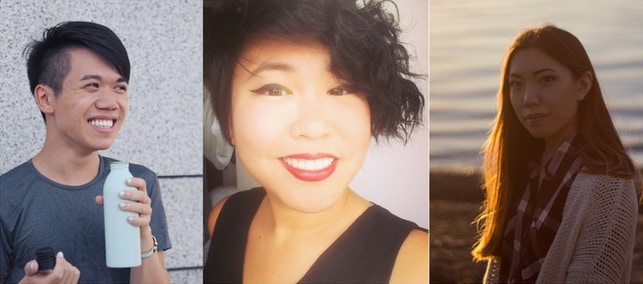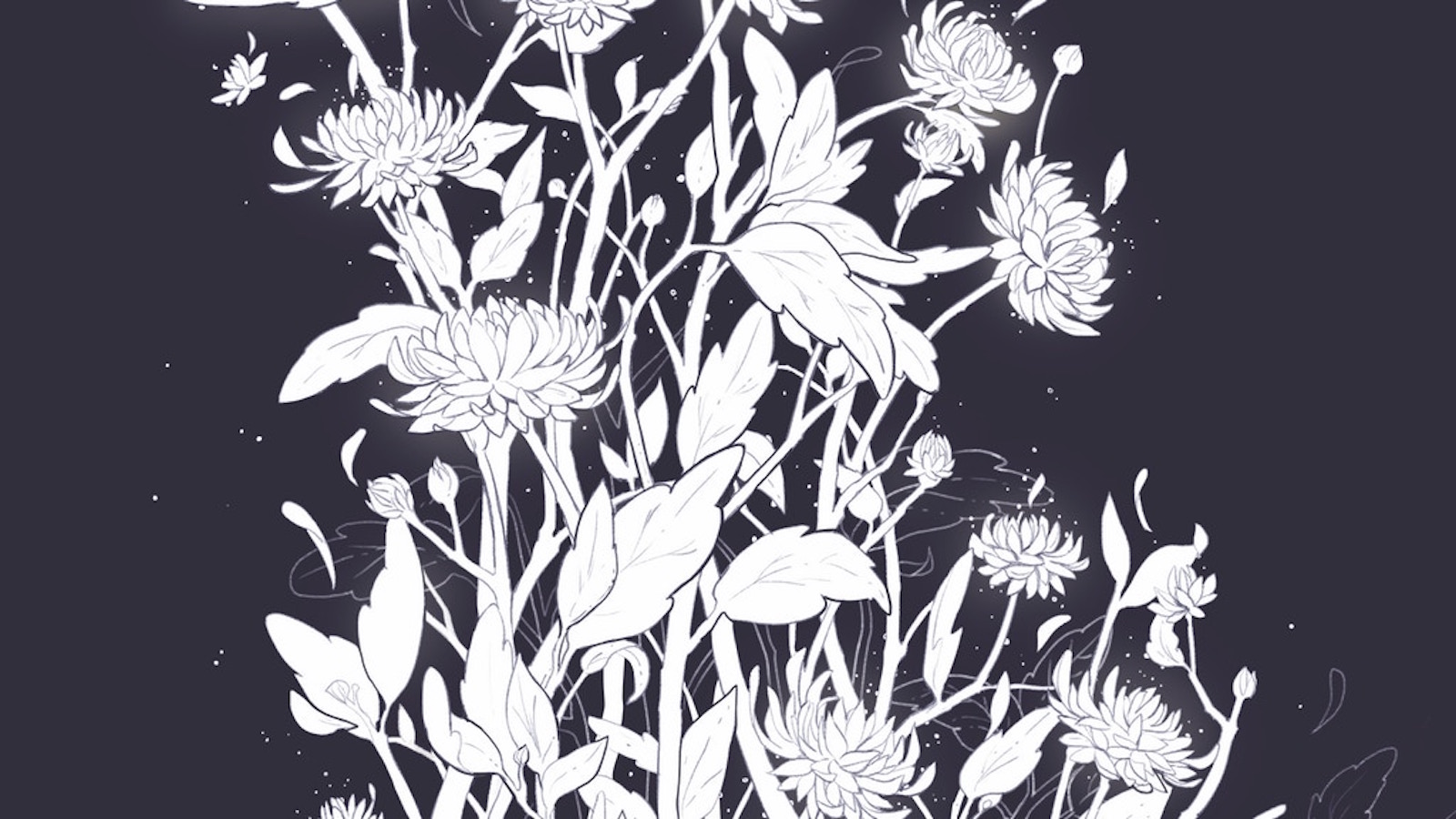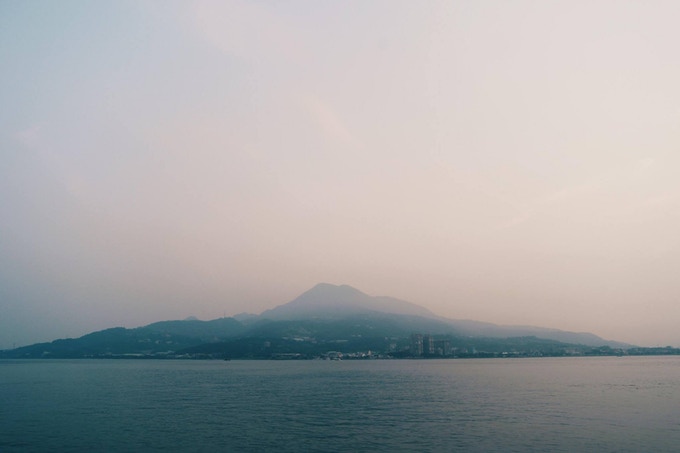by Brian Hioe
語言:
English
Photo credit: Aster Hung/Chrysanthemum: Voices of the Taiwanese Diaspora
New Bloom editor Brian Hioe had a conversation on October 12th with Kevin Ko-wen Chen and Andrea “Chuey” Chu, who, along with Albertine Wang, are the editors of Chrysanthemum: Voices of the Taiwanese Diaspora, an upcoming anthology of print collection of visual and written work by North American members of the Taiwanese diaspora. Chrysanthemum is currently running a crowdfunding campaign on Kickstarter.
Brian Hioe: The first question I wanted to ask is, how did Chrysanthemum begin as a project? What did you hope to fill in terms of a gap that existed previously? And what kind of effect do you hope that this collection could have on the Taiwanese diaspora?
Kevin Ko-wen Chen: So the project really was Chuey’s brainchild, I guess. We had actually met in America in 2014 and then we were in Taipei for a year together. And when she went back to America, she had this idea of starting a project to celebrate Taiwanese-American voices. We were both very active in the Taiwanese-American community while we were in America and I think that it helps us in terms of having lived in Taiwan, to kind of see the other half of the Taiwanese-American identity, then going back and helping to create something out of that.
Andrea “Chuey” Chu: In terms of being Taiwanese-American and living in Taiwan, it brought to light new facets about identity that we hadn’t really considered before. And so living in Taiwan, we struggled with a lot of those new angles on old issues.
Kevin and I were constantly talking about identity and our place in Taiwan and in the US and how that shifts. We were thinking a lot about it and talking a lot about it. After going back to the US, it was really wanting to do something with all the feelings that we had. [Laughs] And seeing where the US was politically and where our community was and wasn’t. Wanting to bring our community a little closer to where we wanted it to be.
 The Chrysanthemum editors. From left to right: Kevin, Andrea, and Albertine. Photo credit: Chrysanthemum: Voices of the Taiwanese Diaspora/Kickstarter
The Chrysanthemum editors. From left to right: Kevin, Andrea, and Albertine. Photo credit: Chrysanthemum: Voices of the Taiwanese Diaspora/Kickstarter
For me and Kevin, we specifically wanted to have a platform that young Taiwanese-Americans can relate to each and be introspective. We also hope to take a look at our political history and were hoping to maybe activate some young people into looking at the political spaces in which they live now. And seeing what they might do in response.
BH: So you’d say that this would be an attempt to influence this community? Maybe more along the lines of what you experienced? It’s interesting that you have chosen writing and art, as a way to interact with the Taiwanese-American community. What was the guiding motivation behind that?
KKC: I think Chuey and I—we both care a lot about the arts—we’re very artistically minded people We see literature and art as a way to address a lot of the issues that face us today.
I think that there’s a spectrum among Taiwanese-Americans, or members of the Taiwanese diaspora, in terms of knowledgeable or how involved they are with these sorts of issues. It’s a way to span that whole spectrum. You have pieces that can speak to people who may not be familiar with issues facing Taiwanese-Americans, and pieces who speak to people that understand it very intimately.
AC: To add onto that, I believe that art and literature are often the most accessible point for talking about socioeconomic issues. Art and literature are often jumping off points for a lot of people. Especially if people don’t have concrete political understanding of Taiwan or the US. Literature is often the first way in which people can start to explore those issues.
Not everyone is going to go hardcore into activism, necessarily. That kind of language or that kind of spirit is often inaccessible to people who haven’t been given the tools and the history to understand themselves in the context of the United States. A lot of Taiwanese-Americans don’t even think a lot about our immigration histories and that sort of thing.
Literature and art are, I think, the most accessible ways that we can talk about these issues and bring people into the fold, while also just being a real comfort. On our Kickstarter we talked about how 2016 really sucked for a lot of people and it seemed like the natural antidote do that is to make art or to consume art. That’s kind of what we were thinking.
BH: Along those lines, why did you decide to choose the name and the theme that you did? That is, choosing the name Chrysanthemum for the anthology and “liminality” as the theme for the first anthology.
AC: We had “liminality” as a theme before we had the title Chrysanthemum. We wanted to have a unifying theme, so “liminality” seemed like a pretty softball place to start. It is a common theme with any second-generation immigrant story or any diaspora, so that seemed like an appropriate place to be wide enough that Taiwanese heritage writers could all relate to it. But also specific enough in sort of telling and feeling.
In terms of the title Chrysanthemum, I think that I had envisioned the kind of pieces were going to get were somewhat different. I was thinking something like, this was going to go the distance and we’re going get these really hardcore angry pieces. And that’s not what actually came in.
Chrysanthemum was sort of a response to what we actually received in terms of submissions, which was much more toned down and introspective and wistful. We also talk about why we chose Chrysanthemum in the actual Kickstarter text. In terms of being a flower that is common in both Asia and the West and what that symbolizes in terms of the project as a whole.
KKC: Adding onto that, the floral imagery is something that I think accords well with the writing that we have. We were talking, for example, how it’s really funny that you guys are called New Bloom. That sort of shared floral imagery.
BH: That’s right. That’s because we came after the Sunflower Movement.
KKC: Blossoming even after other flowers have wilted away. It’s also a flower that is associated with autumn, which is when we’re releasing this, so it worked out that way as well.
BH: In putting this together, I imagine its been a process of dialogue with the people that have submitted to you. What kind of submissions were you expecting and what were the submissions you got in the end and how did that change the project?
KKC: When we initially sent out that call for submissions, at least I personally had no idea what we were going to receive. It’s been really heartwarming that we had so many submissions.
We really had to turn down a lot of people, unfortunately, because we just didn’t have space in a single anthology to include all of these works. So given that there’s been a really popular response, we can maybe do a second edition. Or—I don’t want to jump the gun—but to have future iterations of this.
We have fiction, we have non-fiction, we have poetry. As Chuey mentioned, I think a lot of them are introspective in nature. A lot of reflecting on what one’s place is in a given identity or maneuvering between identities.
 Photo credit: Aster Hung/Chrysanthemum: Voices of the Taiwanese Diaspora
Photo credit: Aster Hung/Chrysanthemum: Voices of the Taiwanese Diaspora
AC: In terms of the responses for the project, a lot of the contributions that we got are really personal for the writers and artists, because this is a really specific niche project that is built around them. It doesn’t happen very much.
And that’s why I think it was so important for us to start this project, because there is no Taiwanese diasporic literature out there that is continually putting out work. Or accepting work.
A lot of people were just really thankful that this project was in existence. That was always really encouraging, that not only are people submitting, but people just hearing about the project were super supportive about what we were doing and really excited about that. That’s been really heartwarming throughout the process. That people were happy that we were doing it.
BH: Along those lines, what have the responses been from other Taiwanese-Americans, from Taiwan itself, and diasporic Taiwanese communities elsewhere?
KKC: It’s been really overwhelmingly positive. We’ve been really surprised and touched by how many people have been supportive. Our Kickstarter campaign is already fully funded, so that in itself is testament to how it’s caught on. But I think that this is in part given that Chuey and I were pretty involved in these communities to begin with.
Many of the people around our network were supportive. But we’ve reached out to Taiwanese-Americans writers, such as Shawna Yang Ryan, and Kelvin Yu retweeted us on Twitter, I think. Even people we didn’t know personally have responded to this, because there hasn’t really been something like this before. I think there’s just an eagerness to see something like this come into existence.
AC: We’ve gotten a lot of support from established writers, such as Kelvin Yu and his brother Charles Yu, Shawna Yang Ryan, Ed Lin, Julie Wu, these are all published authors that have been super-supportive throughout. And that’s been really nice.
The other thing is that our contributions have been overwhelmingly from Taiwanese-Americans. Again, I think that’s a product of the networks that we have. If we could move forward with a second edition, I think reaching out to other Taiwanese diasporic communities would be ideal. Such as Australia or Singapore, or other communities with which we may not have personal connections with, but we’d really like to reach out to.
BH: Would you guys that some of your influences have been among those who spread word of this? Because I also did notice the large response from Taiwanese-American writer, but I’m curious about your inspirations and influences overall.
KKC: A core inspiration is writing from people of color in general. For example, for me, a writer that really speaks to me is Ocean Vuong, the poet. Because I think that he’s created a space within poetry for queer Asian-Americans writers to inhabit. The sort of writing that spoke to us is along that bearing. So we want to do something similar.
And the idea of the anthology is that we can cross a lot of different genres, a lot of different styles. So we can have pieces that are memoirs, as well as pieces that more like fiction. Short stories or fiction, it gives us the breadth to incorporate a lot of different writing styles and a lot of different voices. This is part of what were originally aiming to do.
AC: My personal inspiration would be a short story collection by Octavia Butler called Bloodchild. Marjorie M. Liu is also up there. I think we really wanted to create a space where we could develop more. We’re inspired by individuals who are across the spectrum and not just Asia-America, but all over. We wanted to bring Taiwanese-American voices forward in that.
BH: What have been the challenges to date working on the project? What has been most difficult? Crowdfunding? Finding writers?
KKC: I guess just the logistical challenges, because we’re based in different places. I’m here in Taipei, Chuey is in Chicago, Albertine is in Houston. All the contributors who are contributing are spread out across the world, too. Communications has been something that we’ve had to really keep on top of, even amongst ourselves, just to make sure that things keep going.
AC: I think time has been another issue. Because all three of us are doing this outside of our normal day jobs and so a lot of things, when they take a little bit longer, they actually take a lot longer. [Laughs] Perhaps that’s just what’s happened when you do something for the first time, though.
A lot of this has been figuring out administrative stuff in terms of how exactly we want to edit things and how we want to consider different works and coming up with systems to sift through our submissions and see how we’re going to chose the works that are going to be in the anthology. Also in terms of writing e-mails and letting everyone know what’s going on.
Many of the difficult parts have been in the construction of the project as a logistical task or an administrative task. To develop a crowdfunding campaign took a long time. It took a lot longer than we had hoped it would take. But it really paid off and we’re really happy about that. And we’re really glad that people really have been patient with us throughout the process. [Laughs]
KKC: Patience is super key. Since we making the first issue of this, we don’t have established SOPs or anything in place. We really had to create it as we went and I think that it’s been a really great learning experience for all of us too, honestly. In terms of just how to make something like this happen.
 Photo credit: Chrysanthemum: Voices of the Taiwanese Diaspora/Kickstarter
Photo credit: Chrysanthemum: Voices of the Taiwanese Diaspora/Kickstarter
BH: Is there anything you would like to say in closing, to readers Taiwanese, Taiwanese-Americans, or internationally?
AC: Some people have reached out to us from Taiwan and we’re really grateful about that. I think that this volume was very Taiwanese-American, and Taiwanese North American, but I really hope that in the future, we can open it up a bit further. If we have the opportunity to do so We want to thank international readers and supporters as well. They’re really a big part of our community. Especially mine, seeing as Kevin has lived in Taiwan for such a long time.
KKC: Yeah. Honestly, just to reach out if people have any sort of feedback, suggestions. It’s just been an eye-opening process for us. With continued dialogue between us and our readers, we can hopefully create more of what is needed to fill this space.

